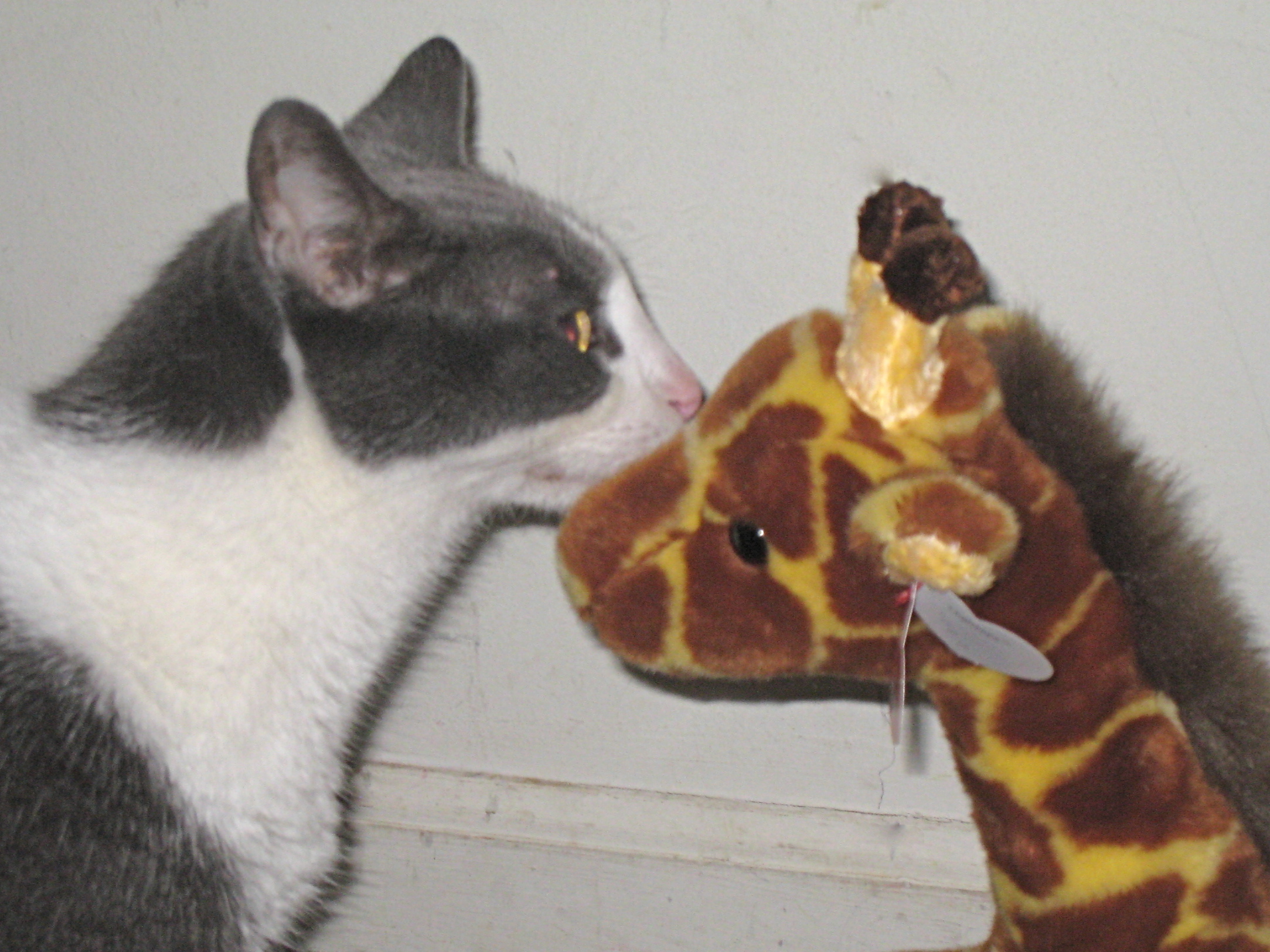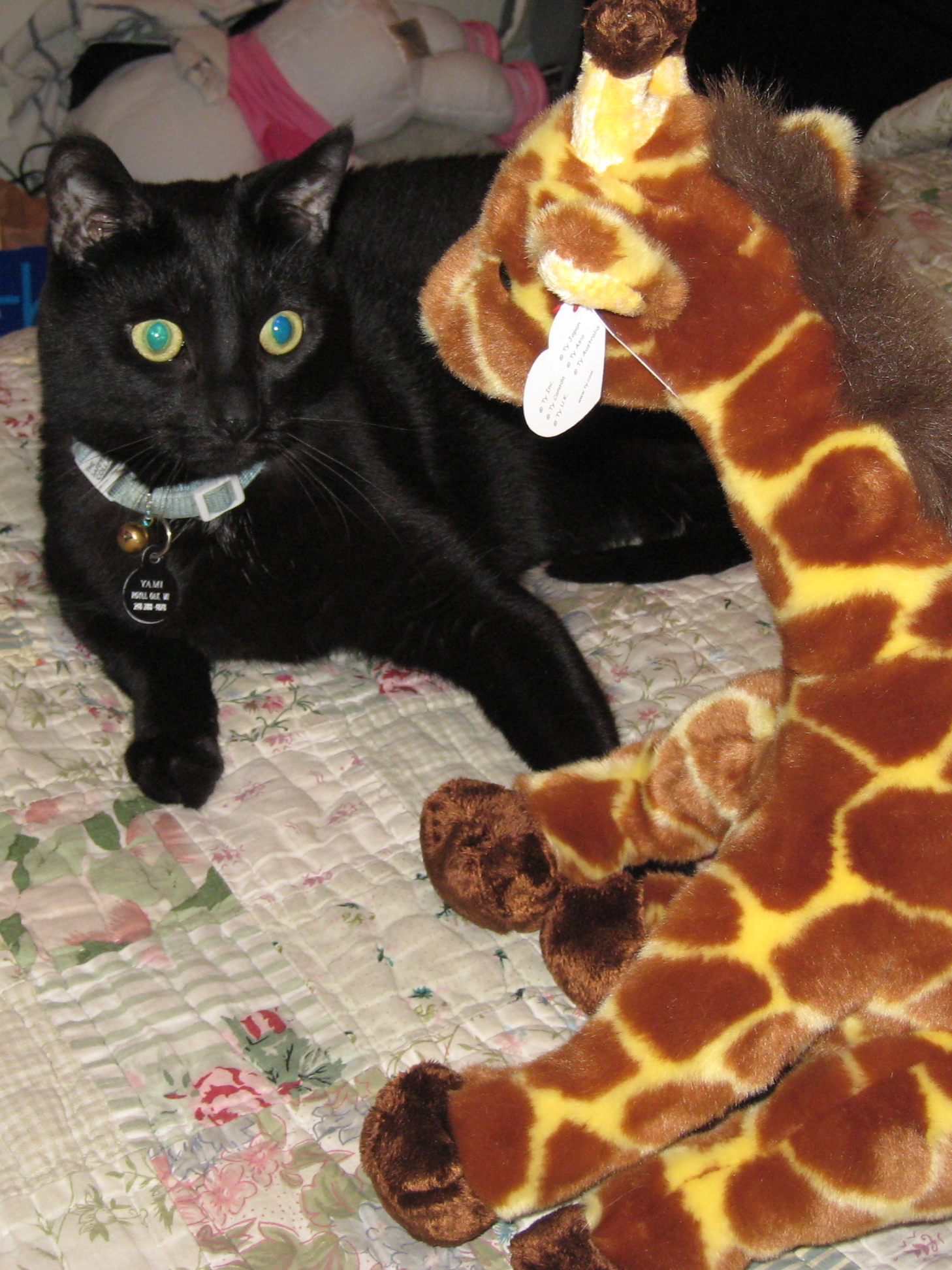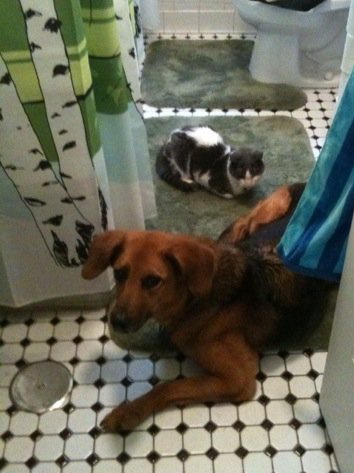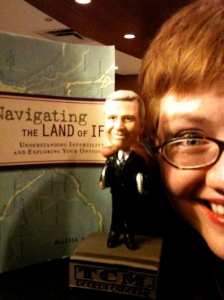Please Stay Another Day (Part Deuce)
I think it’s rather strange how, after writing my last post, Chicago has been raining off and on. This weekend is pretty much going to be the same of scattered showers. I’m thinking that perhaps Mother Naure took my little quote at the end of that post a little too literally.
The following post was meant as a continuation of my last one; following up on further emotions I’ve been experiencing lately. All because of PS’ story. And all because of the unconditional love my cat, Rain, has given me throughout the years …
So without further ado, I give you Part Deuce.
~~*~*~*~*~*~*~*~*~*~*~~

I think about the eventual loss of Rain, sometimes in conjuction with my inability to have kids of my own.
Oh, I know that I place a lot of importance in my pets because they are, in essence, the children I will never(?) have. Even for those families with *actual* children and pets can understand how much these animals become part of your life. They are a source of unconditional love and happiness.
There are moments that I swear that my pets understand me; know me intuitively. It’s as if they have a direct line to my emotions. When I’m happy, they’re out and about trying to play with me. When I’m angry, they know to stay clear from my path. (Except my puppy-girl, Kozzy. Sometimes she’s a little … slow, but we love her to bits!)
And then there are the sad moments; particularly the moments that I’ve been in tears. Those are the moments where my pets seem to come out of the woodworks and surround me. Not all at once; as a mob of 2 cats and a dog would be quite a scene. No, they seem to come around, one by one, as if to make sure I’m never quite … alone.

The past few years, my pets have shown exactly how much they love me. Especially after all the events that had happened to throw my life off kilter. You know … the life that I thought I might have? The one in which I dreamed of the family that I would have had by now. The one in which there are still days or moments or news of pregnancies that I still, to this day, mourn the loss over.
Yes, these pets … my Rain, Kozzy and Yami … are, next to Hubby, another reason why every day I try to put one foot in front of the other. And it’s because, just like Hubby, they’ve seen the worst in me and they still love me unconditionally.
Kozzy still puts her nose right up to my face when I lay paralyzed on the couch. Rain still jumps onto the bed on those days when I can’t seem to get out of bed and plops herself to the side of me, pressing her entire body up against me. Yami still jumps onto my lap and then settles in my arms whenever I sit on the couch staring off into space, burying her entire head up into the crook of my elbow. And they do that independently of any specific events and on their very own accord … all to, in my opinion, make certain that I’m alright. And that I’m not alone.
I know that my pets shower me with love and affection because they know that Hubby & I are there for them unconditionally. Oh, believe me … they piss us both off sometimes to the point where I literally wish I could send the dog to the imaginary dog house, or the cats into a corner where they’d know not to come out until it was safe. But I also think that with the love and affection we provide them, they just want to reciprocate the feelings in the best way that they can.

PS’s story (in the previous post) and the fact that Hubby & I are caring for a pet that is on the downward slope of her life, had stirred up some emotions over the past couple of weeks. And it’s those thoughts of exactly who is going to care for us when we’re older. And who will be providing us with assistance to get around.
I see it with my parents, as I’m now about 5 hours by car from them. I worry about how they are able to get to and from Doctor’s appointments and if they’re actually following up on their health. I worry about my Mom taking a tumble and injuring herself. I worry about my Dad with his heart and his weight and his kidneys. I worry that I’m not going to be able to be there at the moment they need me the most. *
Oh, I know realistically that it’s not always guaranteed that having kids will automatically mean that Hubby and I have someone that will take care of us in our older age as no one can predict the future. If Hubby & I did have kids, who’s to say that (God forbid) our child doesn’t pass away before us? Or that our imaginary child decides that he/she wants nothing to do with us? Or that we’d have a child that requires us to physically care for him/her 24/7?
I know it’s not worth it to place all my eggs in one basket, and to worry about things that I have no control over. But I do. Worry, that is. Not only because, quite frankly … at my age their are no real good quality eggs to place in any basket. But also because one of my biggest fears is that I’ll have outlived** everyone in my life, Hubby included … and be all alone when I die. That there will be no one — well at least no one who loved me unconditionally — by my side.
So it’s with this thought that I know (irregardless of whether we eventually have kids … I can still dream, after all) that I will always have some sort of pet in my life***. One who I will love unconditionally and who will love me unconditionally in return.
I guess this means that Hubby & I will need to find a “Retirement Home” that will be willing to let us keep our pets!

* It’s one of the biggest downsides of moving out of state, but my parents know that this was a move that I needed to do both physically and emotionally. And for that, I am grateful.
** Fat chance of this happening, as I can barely take care of my own health …
*** Except I might just take a little break from acquiring any other animals until I can get past the eventual hole that will be left in my heart when Rain finally goes away.
Block-Head
July had been a pretty busy month; and now, here we are in August and I feel as if I haven’t accomplished much lately. And when I mean “accomplish,” I mean sitting down and feeling satisfied that I’ve produced something that would be worth writing about … let alone have others read.

I’ve started many a posts over the past couple of weeks; all in an attempt to at least write. Except they never made it past the first few paragraphs because … well, I’ve been just plain exhausted.
Oh, who the h*ll am I kidding?! I’ve got major writer’s block and I’m not sure how to solve it other than rambling endlessly of seemingly trivial things.
Like how for Hubby’s birthday on the 19th, we got new iPhones. (So. Frickin. Cool!!)
Or how work had sucked royally from the end of June until about midway through July (when my manager took a two week vacation).
Or even how excited I was to meet Alexa and Mel. And Aunt Becky and Io. (BlogHer Chicago, bay-beh!)

Or how much frickin’ fun Hubby and I had when his Aunt and Uncle along with three of his younger cousins (which included future “Lego Engineer“) came to visit. (Wii Rockband + Lake Michigan Beach = Tons o’ Fun)
Nope. Got nothin’ in this brain of mine that I’ve felt have been in depth or insightful. Not that I haven’t had those thoughts … I just can’t seem to get them down on paper — er, on my laptop.
At the very least, I wanted to share some pictures from my meet-up with some awesome bloggie friends from Blogher Chicago. (Un)fortunately, I didn’t get a chance to actually attend the conference. But seeing that it was literally being held across the Chicago River (just one short jaunt across the Columbus Drive bridge) from where I work, I had to at least try to meet up with these women who have provided me with such incredible emotional support over the past three years.

Unfortunately, as Hubby’s been slammed with work lately, he was not able to Photoshop us into Super-Hot Uber babes. (Sorry, chicas … but we’re all beautiful anyway!)

Anyhoo … I just wanted to, at the very least, refresh my blog for now. Well, at least until inspiration strikes, anyway.
Oh, and to wish the wonderful Io a most excellent birthday. Here’s hoping you get to spend more time with A. instead of Robert Osbourne.
But seriously peeps … anyone got any good cures for Writer’s Block?
Hips *DO* Lie
It’s been hot lately in Chicago. I mean, I’m not complaining. Considering how just a few months ago I was complaining how frickin’ cold it was outside.
Now that Hubby’s here with me permanently, I have to admit that I’ve been using him (and our car) as my primary means to get to work. Because sometimes getting to work in a sweltery mess (when I’m supposed to be lookin’ all professional and sh*t) is not always a pleasant thing. Yeah … like I’ve always said. I don’t “glisten” like most women do. I down and out sweat. Like a hog.
I’m spoiled, I know. In many counts. But in this scenario, the fact that I get air-conditioned door-to-door “valet” service in the morning is wonderful. That, and the absolutely spectacular view I get of Lake Michigan every morning is downright overindulgence.
So yes, that’s how I find myself getting to listen to morning talk radio on the 7 mile/20 minute ride into work every morning. And truth be told, I have missed that part of my daily commute with my previous employment.
Morning talk radio is absolute smut. But seriously, that’s how I tend to get my latest celebrity gossip. (How do you think Hubby heard about the scheduled Johnny Depp appearance?) That, and my daily laughs of stupid conversation topics. Like the worst advice your parent may have given you. Or the worst back-handed compliment someone may have said to you.
That last one was spurred by the description Marlon Brando apparently made about Jackie Onassis in an unpublished passage of his biography. If you hadn’t heard the latest news, Brando and Jackie O. allegedly had an affair about a year after JFK was assassinated. He described her as having “boyish hips” and a “muscular frame.”
Now, as a non-girly girl, I don’t find anything offensive about that comment. But I suppose if I was seen as the fashion icon of the ’60’s … it would be considered a slap in the face.
And that’s how radio listeners began to call in with various back-handed compliments they had received in the past. One woman called in saying that a blind date told her over dinner that she was “stocky” and then made things worse by rescinding it back and calling her “healthy.”

Another woman called in about a shoe salesman who told her that her legs and ankles were “pretty thick.”
So of course I had to turn to Hubby and tell him the worse compliment that I can remember being told. And that was that I had excellent “child-bearing hips.”
For the life of me, I can’t remember who had told me that. But I do remember that it was prior to marrying Hubby. Which would mean that it would be before Hubby and I even started trying to “bear children.”
And even though I do have a large-ish ba-dunk-a-dunk, which is supported by them wide hips of mine … it still stings a bit when I remember that “compliment.” Especially after all the years of my hips failing to bear those children.
D*mnit. Shakira was wrong. Apparently, hips *do* lie.
Okay, so ‘fess up, blog world. What’s the worst compliment anyone has given to you?
